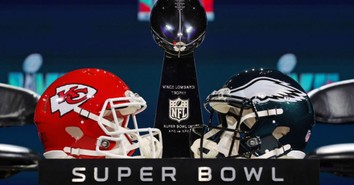How Fear Is Shaping the Future of Our Nation
Politicians and pundits on both sides of our deep partisan divide are warning us that if their party does not win tomorrow’s election, our democracy will be imperiled. Others are confident that this is not true. Renowned Wall Street Journal columnist Peggy Noonan assures us, “This intense season will pass, the losers will feel crushed, and we will forge our way through,” as we have so often before. She reminds us that we’ve not given up on each other in the past and encourages us to keep our faith in democracy and in one another. Representing a different point on our political spectrum, McKay Coppins writes in the Atlantic, “This is not the end of America,” noting that democracy is less an institution than the people it serves.
On the eve of one of the most unique and consequential elections in American history, I’d like to suggest a third perspective, one that points to the hope transcending all that happens in and to our nation this week.
Two Competing Realities and Three Forms of Governance
America’s founders were vitally aware of two competing realities. On one hand, as our Declaration of Independence declares, “All men are created equal,” an expression of the biblical fact that “God created man in his own image” (Genesis 1:27).
At the same time, they knew that as fallen people, none of us could be trusted with autonomous power. That’s why they created three separate but equal branches of government, each holding the other in check. This system can produce gridlock and 50–50 political divisions that some lament, but as political analyst Yuval Levin has noted, it also ensures that all are represented and none can have an unfair monopoly over others.
Of the three forms of governance—autocracy, theocracy, and democracy—the third is truest to our sacred but fallen human nature. The first depends on a single individual to rule well. The second depends on humans to infallibly interpret and exercise the divine will. The third depends on humans governing themselves and each other within the rule of law.
As America’s history shows, this model can see us through world wars, economic depressions, civil unrest, and massive technological and cultural disruptions.
“The Deepest Habit of Mind in the Contemporary World”
But there’s a potentially fatal flaw in this system: since we have no king or theocratic ruler greater than ourselves since our government is “of the people, by the people, for the people,” we have no authority or power greater than ourselves to trust when confronting challenges greater than ourselves.
This fact can draw us closer to the One who alone can sustain, protect, and bless us, as it did for so many of our Founders. Or it can encourage an intensified but misguided faith in humanity.
Tragically, we are choosing the latter, replacing God with ourselves and confidence in “progress” that C. S. Lewis called “universal evolutionism.” He described it this way:
The very formula of universal progress is from imperfect to perfect, from small beginnings to great endings, from the rudimentary to the elaborate, the belief that makes people find it natural to think that morality springs from savage taboos, adult sentiment from infantile sexual maladjustments, thought from instinct, mind from matter, organic from inorganic, cosmos from chaos.
According to Lewis, “This is perhaps the deepest habit of mind in the contemporary world.” In this view, science and human effort will solve our problems, and things will inevitably get better.
But things are not inevitably getting better.
In recent days, we’ve learned more about the threats of generative AI, another potential pandemic, Iranian nuclear weapons, North Korean missiles, Russian bioweapons, Chinese space weapons, continued terrorism, the rise of global war, and the growing menace of nuclear annihilation.
No wonder Americans are “weary, troubled, and nervous” and more fearful about the future than at any time in recent history. It’s not just that the threats seem greater—they are exposing the fallacy of trusting in ourselves to face them.
“There Is Nothing Coming Next”
The Wisdom of Sirach is a second-century BC book included in some versions of the Bible. Whether it should be considered canonical or not, its warning is both prescient and relevant:
Do not rely on your wealth or say, “I have enough.” Do not follow your inclination and strength in pursuing the desires of your heart. Do not say, “Who can have power over me?” (5:1–3).
A better approach is to declare with the prophet: “Behold, God is my salvation; I will trust, and will not be afraid; for the Lᴏʀᴅ Gᴏᴅ is my strength and my song, and he has become my salvation” (Isaiah 12:2).
In Brave by Faith: God-Sized Confidence in a Post-Christian World, pastor and author Alistair Begg writes:
God’s kingdom, and not my nation, is where we belong and where we will be at home, and if we confuse the two, we open ourselves up to confused loyalties and compromised faith. We are in Babylon—and God is sovereign even here. Nothing is actually out of control, and nothing is about to get out of control.
Unfortunately, he adds: “Too much of the public face of evangelicalism is characterized by vociferous, angry venting or panicking, rather than prayerful, humble, calm, and confident belief in a sovereign God who is in control of things.”
Instead, we should remember:
“We are being used to build the only kingdom that will last forever. There is nothing coming next. So, give your best to this kingdom. It may feel small, but it is never in vain, for this kingdom is eternal, and it is God’s.”
Whose kingdom will you trust and serve today?
*Denison Forum does not necessarily endorse the views expressed in these stories.
Quote for the Day:
“God has a sovereignty over all his creatures and an exclusive right in them, and may make them serviceable to his glory in such a way as he thinks fit, in doing or suffering; and if God be glorified, either by us or in us, we were not made in vain.” —Matthew Henry
Photo Courtesy: ©Getty Images/stevanovicigor
Published Date: November 4, 2024
Jim Denison, PhD, is a cultural theologian and the founder and CEO of Denison Ministries. Denison Ministries includes DenisonForum.org, First15.org, ChristianParenting.org, and FoundationsWithJanet.org. Jim speaks biblically into significant cultural issues at Denison Forum. He is the chief author of The Daily Article and has written more than 30 books, including The Coming Tsunami, the Biblical Insight to Tough Questions series, and The Fifth Great Awakening.
The views expressed in this commentary do not necessarily reflect those of CrosswalkHeadlines.
For more from the Denison Forum, please visit www.denisonforum.org.
The Daily Article Podcast is Here!







